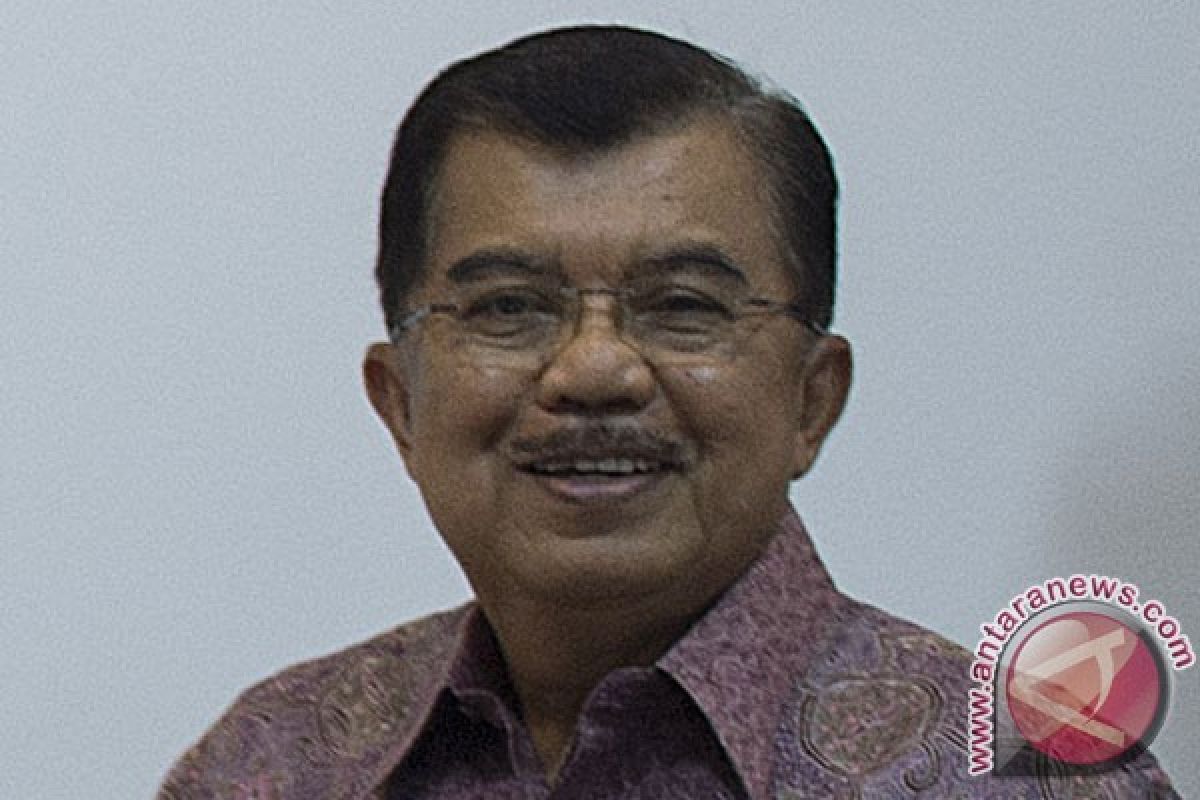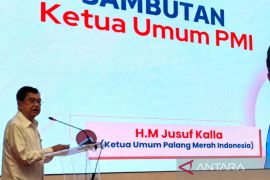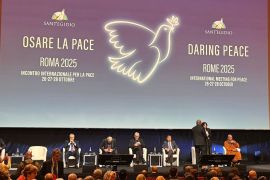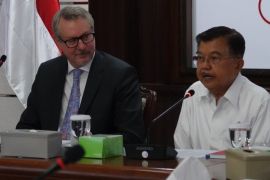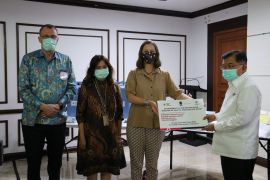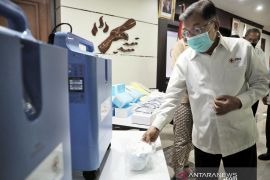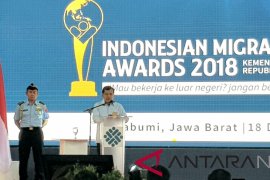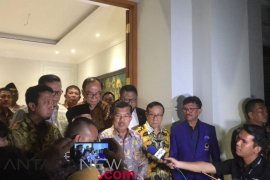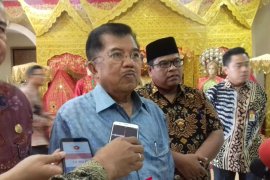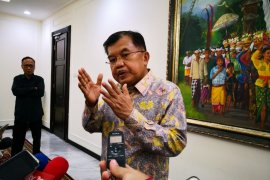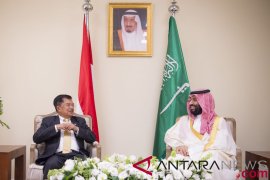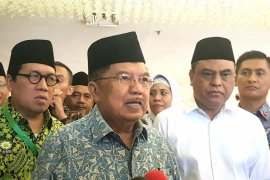The leaders and religious figures must be democratic and ensure justice for their people."Jakarta (ANTARA News) - Indonesian Vice President M. Jusuf Kalla has urged the public to build harmony and promote tolerance while observing the holy month of Ramadan.
In his sermon during evening prayers at Sunda Kelpa mosque in Central Jakarta on Sunday evening (June 21), Kalla called on all public elements to create a democratic climate and build harmony and tolerance.
On the occasion, the vice president underlined the importance of the role played by leaders and religious figures in solving any problem that may arise in the country.
He invited and urged the leaders and religious figures to guide the people to apply their religious teachings on all occasions and constantly strive to seek peaceful solutions to all problems.
According to Kalla, building and maintaining religious harmony along with presenting enlightened examples of leadership are vital to settle conflicts.
The vice president noted that amid the heterogeneity and dynamism of Indonesia, during times of conflict, leaders and religious figures should play an active role by seeking peaceful solutions.
He further emphasized that the leaders and religious figures of a nation should apply just and democratic principles in the best interests of their people.
"The leaders and religious figures must be democratic and ensure justice for their people," the vice president remarked.
Kalla pointed out that the conflicts, which often occur in countries in the Middle East, were caused by undemocratic leaders who did not respect the aspirations of their people.
He also affirmed that the leaders of countries in the Middle East were merely enjoying the local natural wealth without thinking about their peoples welfare.
"What can we learn from this reality? In oil-producing countries that were previously prosperous, we see that they could destroy themselves," the vice president remarked.
Kalla explained that the condition in those countries was the result of undemocratic leaders who failed to provide what is right for their people.
According to Kalla, the differences in ideology and outlook between the Sunni and Shiite groups in the Middle East countries were often also the cause of disputes and conflicts.
Therefore, the vice president highlighted the importance of tolerance for maintaining inter-religious harmony, as it prevails among different religious communities in Indonesia.
Earlier, Foreign Affairs Minister Retno L.P. Marsudi in her opening address during a workshop on "Democracy and Innovation in Good Governance" here recently stated that the values of Islam and democracy in Indonesia may also be applied in other countries.
"Indonesia is an example that Islam and democracy can coexist. It is beyond doubt that almost 90 percent of Indonesias population is Muslim, but democracy can function well, and all the people of different religions can live in perfect peace and harmony," Retno affirmed.
In light of this, the foreign affairs minister noted that in several international forums, Indonesia has always shared its experiences and the best possible practices regarding democratic developments in developing Muslim countries.
In the meantime, member of the Peoples Consultative Assembly (MPR) Farid Alfauzi remarked on Sunday in Bangkalan district, East Java, that tolerance, being the key to ensuring peace in the nation, must continue to be maintained in Indonesia.
"We should continue to foster a tolerant attitude in running the state to ensure that all religious groups of different faiths live in peace and harmony," Alfauzi noted at the Al-Kholidiyah Islamic Boarding School in Bangkalan.
He affirmed that the four pillars of the Indonesian nation were the states five founding principles of Pancasila, the 1945 Constitution, the concept of the Unitary State of the Republic of Indonesia (NKRI), and the Bhinneka Tunggal Ika, which is the national motto of "Unity in Diversity."
They are the prerequisites for the Indonesian nation to stand firm, he remarked.
"Every Indonesian citizen must be confident that the moral principles of the four pillars will lead the country to independence, unity, sovereignty, justice, and prosperity," Alfauzi affirmed.
Furthermore, the MPR member noted that people need to take efforts to raise awareness and to develop and empower the nation.
According to Alfauzi, it is important for all parties --state officials at both central and local levels and the Indonesian citizens -- to be equally responsible for understanding and implementing the values of the four pillars of the nation in their everyday lives.
Since the initiation of the NKRI concept, the founding fathers of the state realized that the existence of a pluralistic society in Indonesia was an asset that should be recognized, accepted, and respected, he remarked.
However, he explained that unwittingly, the inability of communities to effectively embrace diversity and pluralism has led to various upheavals that endanger national unity.
Alfauzi also cited the example of Madura Island where several ethnic communities from different cultural and religious backgrounds coexist in perfect peace and harmony, with a sound understanding of tolerance.
(T.O001/INE/KR-BSR/A014)
Reporter: Otniel Tamindael
Editor: Priyambodo RH
Copyright © ANTARA 2015
